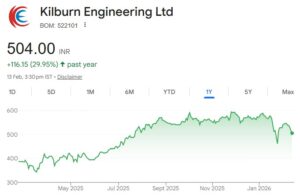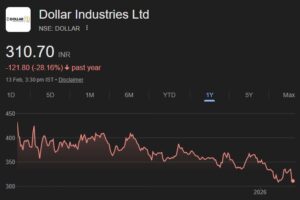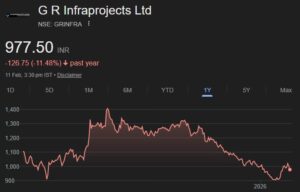Steve Forbes, the Editor in Chief of Forbes magazine says “Don’t let your emotions be your enemy. Be disciplined! Start investing in the market. Put in a little bit each month.”
This is so true. If you were one of the unfortunate many who listened to Ramesh Damani, Shankar Sharma and the other dooms-day sayers and sold all or part of your share holdings – you would be very miserable today – no thanks to the spectacular 60% + rise in the stock indices.
Better not to have than to have and to lose!!
At a time like this, it’s easy to go into a shell. Every look at the share prices of your depleted holdings (or ex-holdings) sends a chill down your spine. If only I had held on! If only I had resisted the urge to sell! If only I had bought instead …!
I share your pain. I sold all my holdimgs in BHEL, INFOSYS, TCS, MARUTI and other spectacular performers. Now I’ve gone into a shell – all I can do is pray that the stock market plummets like a stone and I can stand vindicated for my sales.
However, that may or may not happen. So, its important to go back to the basics of investment and remind ourselves of what we did wrong and hope that we don’t repeat the same mistakes again.
Yes, the markets will fall .. and rise … and fall and rise …. But believe me, when one is looking at long-term financial goals, the stock market is still the best place to invest because it in the long-term it always outperforms other investment avenues.
Stay Calm and composed:
You gave into your instincts at the market downturn and sold off your shares – what does that teach you? That a knee-jerk reaction to a market collapse is never the solution. Never again should you give into the urge to pull money out of the stock market and put in low-risk investments. Remember low risk means low yield. Instead you can balance the risk of equities by having a balanced portfolio.
Go the automatic route:
The best way to conquer your emotions is to put your investments on auto-pilot under the Systematic Investment Plan (“SIP”) or the Systematic Transfer Plan (“STP”). This concept is beautifully explained in Benjamin Graham’s time-tested treatise “The Intellegent Investor” and one cannot do better than to quote from there:
“As the financial markets heave and crash their way up and down day after day, the defensive investor can take control of the chaos. Your very refusal to be active, your renunciation of any pretended ability to predict the future, can become your most powerful weapons. By putting every investment decision on autopilot, you drop any self-delusion that you know where stocks are headed, and you take away the market’s power to upset you no matter how bizarrely it bounces.
As Graham notes, “dollar-cost averaging” enables you to put a fixed amount of money into an investment at regular intervals. Every week, month, or calendar quarter, you buy more—whether the markets have gone (or are about to go) up, down, or sideways. Any major mutual fund company or brokerage firm can automatically and safely transfer the money electronically for you, so you never have to write a check or feel the conscious pang of payment. It’s all out of sight, out of mind.
The ideal way to dollar-cost average is into a portfolio of index funds, which own every stock or bond worth having. That way, you renounce not only the guessing game of where the market is going but which sectors of the market—and which particular stocks or bonds within them—will do the best.
Let’s say you can spare $500 a month. By owning and dollar-cost averaging into just three index funds—$300 into one that holds the total U.S. stock market, $100 into one that holds foreign stocks, and $100 into one that holds U.S. bonds—you can ensure that you own almost every investment on the planet that’s worth owning.7 Every month, like clockwork, you buy more. If the market has dropped, your preset amount goes further, buying you more shares than the month before. If the market has gone up, then your money buys you fewer shares. By putting your portfolio on permanent autopilot this way, you prevent yourself from either flinging money at the market just when it is seems most alluring (and is actually most dangerous) or refusing to buy more after a market crash has made investments truly cheaper (but seemingly more “risky”).
So the takeaways are:
(i) Stock markets are the best solution against inflation because in the long term the stock market (as a whole – not necessarily individual stocks) tends to go upwards. Big Blue Chip companies of today may not necessarily be the same 10, 15 or 20 years from today. So, the best way out is to own the market in the form of the index and not individual stocks. There are also index funds for different sectors e.g. NIFTY BEES, NIFTY JUNIOR BEES and NIFTY BENCHMARK BEES. Their cost and expense ratios are also much lower than actively managed funds and this translates into big savings in the long term;
(ii) Look for value and not price. When the market collapses, the prices of good shares gets beaten up as well. These are the best opportunities to invest in. Good companies with excellent fundamentals that are available at bargain prices should be grabbed and held onto to await their return to fair values;
(iii) Diversify not just amongst different kinds of stocks but also different kinds of savings. Make sure you have some money in Gold, real estate and bonds.





